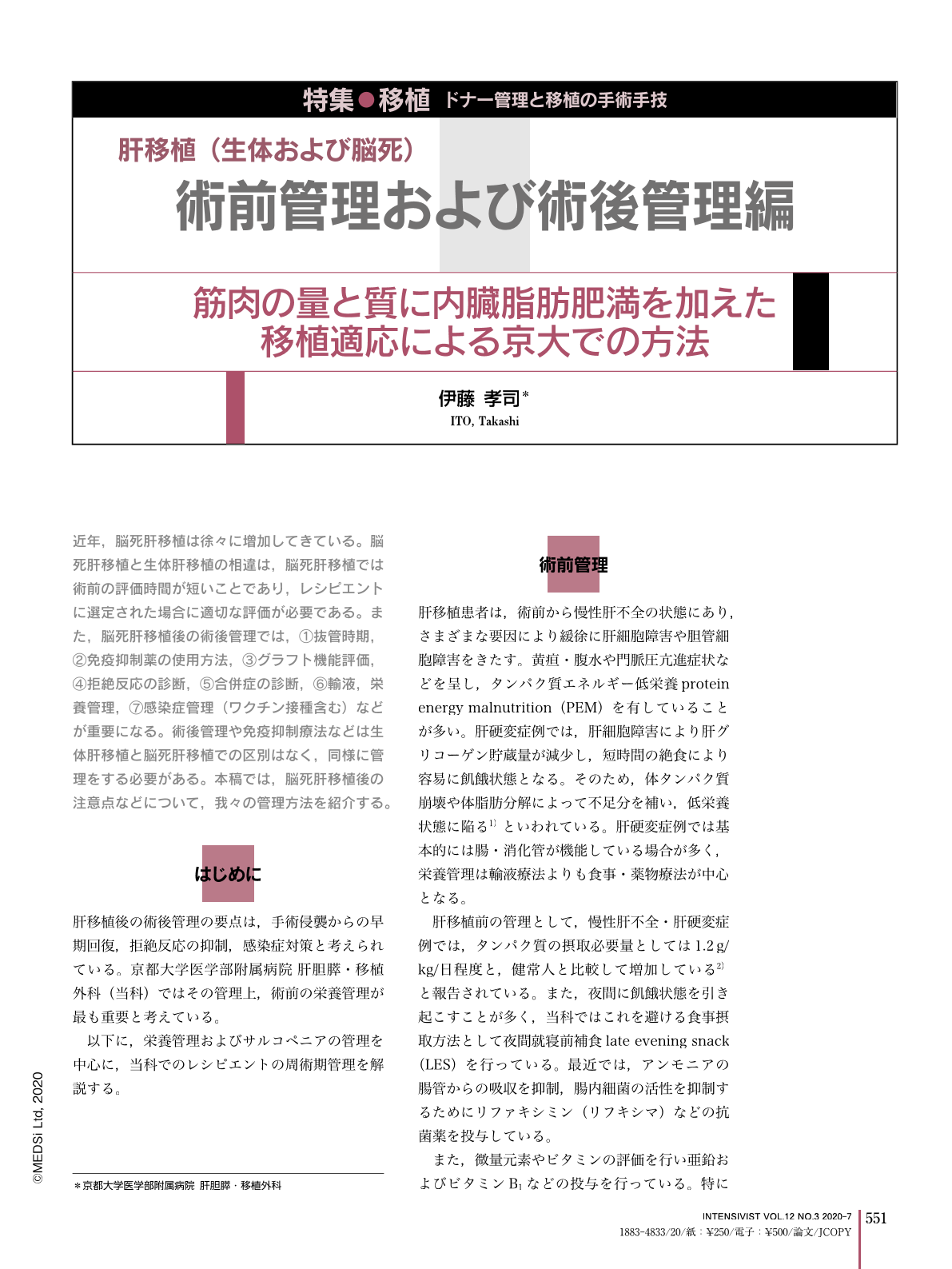Japanese
English
- 有料閲覧
- Abstract 文献概要
- 1ページ目 Look Inside
- 参考文献 Reference
近年,脳死肝移植は徐々に増加してきている。脳死肝移植と生体肝移植の相違は,脳死肝移植では術前の評価時間が短いことであり,レシピエントに選定された場合に適切な評価が必要である。また,脳死肝移植後の術後管理では,①抜管時期,②免疫抑制薬の使用方法,③グラフト機能評価,④拒絶反応の診断,⑤合併症の診断,⑥輸液,栄養管理,⑦感染症管理(ワクチン接種含む)などが重要になる。術後管理や免疫抑制療法などは生体肝移植と脳死肝移植での区別はなく,同様に管理をする必要がある。本稿では,脳死肝移植後の注意点などについて,我々の管理方法を紹介する。
In recent years, the number of brain-dead donor liver transplants are gradually increasing. The biggest difference between brain-dead donor liver transplantation and living donor liver transplantation is the short preoperative time available in brain-dead donor liver transplants, which still requires appropriate evaluation. In the management after brain-dead donor liver transplantation, it is important to consider (1) timing of extubation, (2) use of immunosuppressive agents, (3) evaluation of graft function, (4) diagnosis of rejection, (5) diagnosis of complications, (6) management of nutrition, and (7) management of infectious diseases (including vaccinations). Postoperative management and immunosuppressive therapy, etc., should be managed in the same way, with no distinction between living and brain-dead donor liver transplants. In this article, we introduce our management methods, including precautions after brain-dead donor liver transplantation.

Copyright © 2020, MEDICAL SCIENCES INTERNATIONAL, LTD. All rights reserved.


